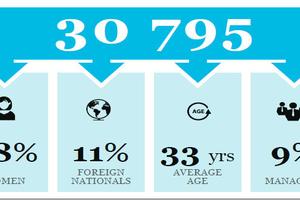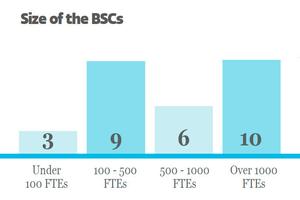Today, many Slovak-based business service centres (BSCs) take up research, development and expertise activities from their parent companies and establish so-called centres of excellence (CoE).
What is a business service centre?
Business service centre (BSC), or shared service centre: an organisational unit responsible for the execution of specific tasks (for example finance & accounting, IT support, HR) supporting the core activity of the company
Business process outsourcing (BPO): involves contracting of the operations and responsibilities of specific business processes to a third-party service provider.
Source: Business Service Center Forum 2017 Survey
Generally, a CoE can be defined as a group of skilled workers using brand new technologies to provide research, expert guidance, training and support for other teams in a specific area of the company.
Originally, BSCs were established in Slovakia to save on costs and delivery. The emerging CoE drive central and eastern Europe from among the lower-cost group of countries up to the higher-cost group. Currently, companies bring work to Slovakia because of its high level of knowledge and expertise, but definitely not because of the labour arbitrage, according to Maroš Čuchta, head of the Accenture Advanced Technology Center in Bratislava.
“Also, the flexibility and the ability to ramp up quickly and respond to needs immediately is why the work is being done here in Slovakia,” Čuchta told The Slovak Spectator.
The emergence of CoE results from the natural evolution of enterprises and the search for an added value of individual units to boost their competitiveness, said Ján Papula from the Department of Strategy and Entrepreneurship at the Comenius University in Bratislava.
Changes in Slovak SSC
In the past, traditional shared service centres (SSCs), or BSCs were created to reduce transactional costs. On the other hand, today’s CoE are knowledge-based centres focusing on higher efficiency and productivity.
Such centres are, therefore, moving to places where research universities operate, and where most of the university-educated workforce is, said Papula.
“It is a great opportunity for Bratislava and Košice, also in regards to the topics addressed by BSCs now and in the future,” Papula told The Slovak Spectator.



 In centres of excellence, a group of skilled workers is using brand new technologies. (source: SME)
In centres of excellence, a group of skilled workers is using brand new technologies. (source: SME)


